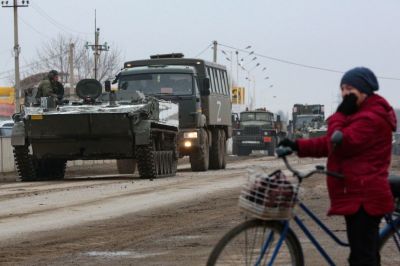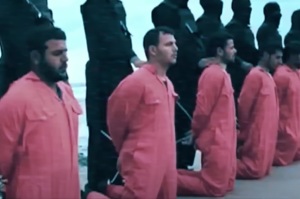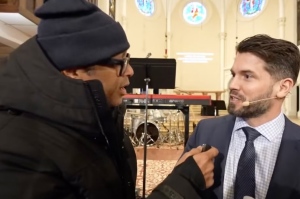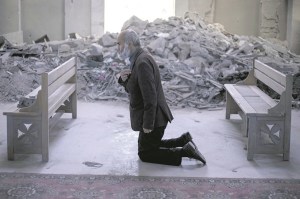Ukraine's mission command wins against Russia's top-down command
“In warfare, morale is to material as is the ratio of three to one.” – Napoleon Bonaparte

As Americans have watched the invasion of Ukraine unfold, most have focused on the size of forces and equipment used. For weeks, news reports of a “40-mile convoy” coming from Belarus to the northern outskirts of Kyiv were ubiquitous. Based on the substantial size of Russian forces and seemingly invincible advantages in equipment, many expected Russia to overthrow the Zelensky government in days or weeks. Then we learned of the many Russian logistical problems and the lack of combined arms maneuver. While those material problems do exist, Ukraine's battlefield success can be attributed to a critical component: morale based on a culture of trust and freedom – mission command.
The U.S. Army defines mission command as the “exercise of authority and direction by the commander using mission orders to enable disciplined initiative within the commander’s intent to empower agile and adaptive leaders...” Mission command goes beyond orders and requires an environment of freedom and trust between leaders and subordinates. With mission command, commanders provide subordinates with the envisioned end state and allow subordinate leaders the freedom of initiative to help achieve that end state. The description in Mission Command: The Who, What, Where, When and Why An Anthology offers the following for why mission command works and what it encompasses: “In the chaos and uncertainty of modern war, our troops must be empowered to make decisions, take the initiative, and lead boldly. This is Mission Command: a command culture, leadership style, and operating concept that has been embraced by armed forces the world over.”
The antithesis of mission command is “top-down” command, in which trust and freedom are not necessary and commanders do not desire initiative from subordinates. The Soviet Union operated this way, and the Russian Army has continued it. Top-down command is the norm for repressive societies that cannot risk allowing subordinates too much information and initiative. Noted military author Fred Kaplan, according to Slate, puts it well about the Russian command style: “[T]he Russian army — like the Soviet army before it — ….. has always had a top-down command structure, which forbids junior officers from taking the initiative (hence the calamitous breakdowns when things didn’t go exactly as planned and the killings of several Russian generals who had to rush to the frontlines to take control).”
Since 2014, due both to the unique aspects of the very decentralized war in the Ukrainian Donbas region and NATO training, Ukraine has developed a high level of mission command. In describing Ukrainian General Valeriy Zaluzhnyy, who commands the Ukrainian Army, and his subordinate junior leaders, Politico offered this valuable insight: “Zaluzhnyy epitomizes a new generation of Ukrainian officers who cut their teeth in the grinding eight-year war in Donbas and, when not on the front, deployed to training ranges across Europe to drill with NATO forces — experiences that have sanded off many of the authoritarian edges produced by decades of rigid Soviet military training. That collaboration with NATO has molded a group of professional-minded officers that aspired to Western standards and helped build a decentralized, empowered, more agile way of warfare than the Russian model, which has floundered in the Ukrainian mud.”
Retired Army ColonelLiam Collins presciently noted about the Ukrainian transformation to mission command: “[Ukrainian soldiers] were the ones burned from the experience and [who] realized ‘hey, we can’t have everything go to the general before we make a decision." Collins said that Ukrainian officers training with NATO spurred a "cultural change at the battalion level on down."
"An entire generation understood how to lead, and I think the generals understood that it worked,” commented Collins.
Politico reports Zaluzhnyy said of the contrast between his generation’s experience with top-down command and the new generation: “These are completely different people — not like us when we were lieutenants. These are new sprouts that will completely change the army in five years. ... New sergeants. These are not scapegoats, as in the Russian army, for example, but real helpers who will soon replace officers.”
Our society must recognize in this war the existential need for mission command. Importantly, and as repressive societies show, the trust and freedom required of mission command must pervade civil society first to become the culture within the military. Americans have traditionally trusted fellow citizens with free speech, even in disagreement. Our society has traditionally condoned and encouraged originality of thought and opinion, even when contrary to the majority. The rising calls in America for the censorship of alleged “disinformation,” as well as the rising “cancel culture” driving conformity of viewpoint, both oppose the freedom and trust needed for a mission command culture.
For many years, we helped teach the Ukrainians about mission command, which they have now successfully shown on the battlefield. Let’s take note of the Ukrainian success against Russia's top-down command. Let us reflect on the importance of the liberty and trust within civil society that we need to win. May we remain the land of the free and home of the brave, and continue to pray for God’s blessings on Ukraine and for freedom to ring for all men.
Bill Connor, a retired Army Infantry colonel, author and Orangeburg attorney, has deployed multiple times to the Middle East. Connor was the senior U.S. military adviser to Afghan forces in Helmand Province, where he received the Bronze Star. A Citadel graduate with a JD from USC, he is also a Distinguished Graduate of the U.S. Army War College, earning his master of strategic studies. He is the author of the book Articles from War.



























